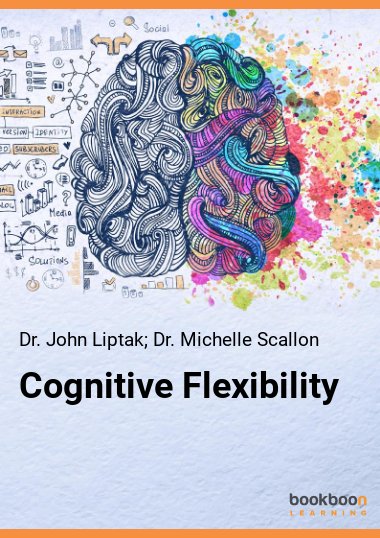Cognitive flexibility gives you the brain power you need to solve problems at work and home by thinking in new ways. This important core competency will help you improve all areas of your life, including your education, job skills, and personal life. This book will show you how to become mentally agile by harnessing your neuroplasticity to avoid thinking traps, improve your creativity, increase your hopefulness, cope with stress, and even become more humorous. You will learn to reframe challenges so you can overcome setbacks and successfully adjust to change.
About the Authors
Dr. Michelle J. Scallon earned her Ph.D. in Clinical Psychology in 2007 from Seattle Pacific University. She has many years of experience providing psychotherapy in correctional and outpatient settings. Her dissertation was titled “The Impact of Social Support and Humor on Levels of Hope in Individuals Who Are Coping with HIV/AIDS.” She is passionate about helping people capitalize on their strengths. Dr. John J. Liptak is an internationally-recognized author with thirty years of work experience providing counseling. He has authored over 100 workbooks with Ester Leutenberg, 31 career assessment instruments, and ten books. John earned an Ed.D. in Counselor Education from Virginia Tech. He lives in Radford, Virginia, in the United States and is President of the Center for Career Assessment, Inc. John has written eight books for Bookboon.


